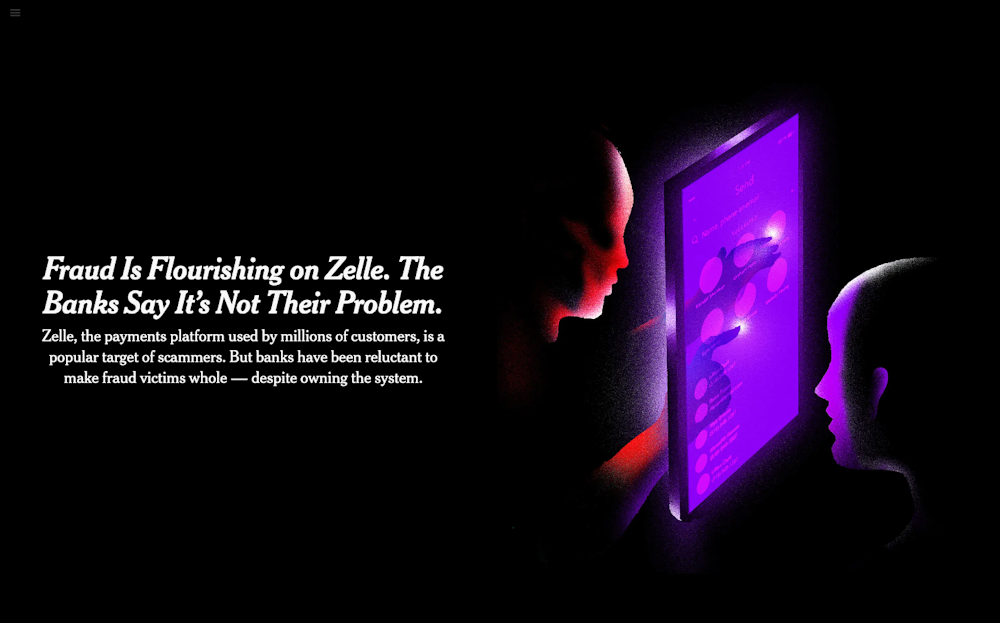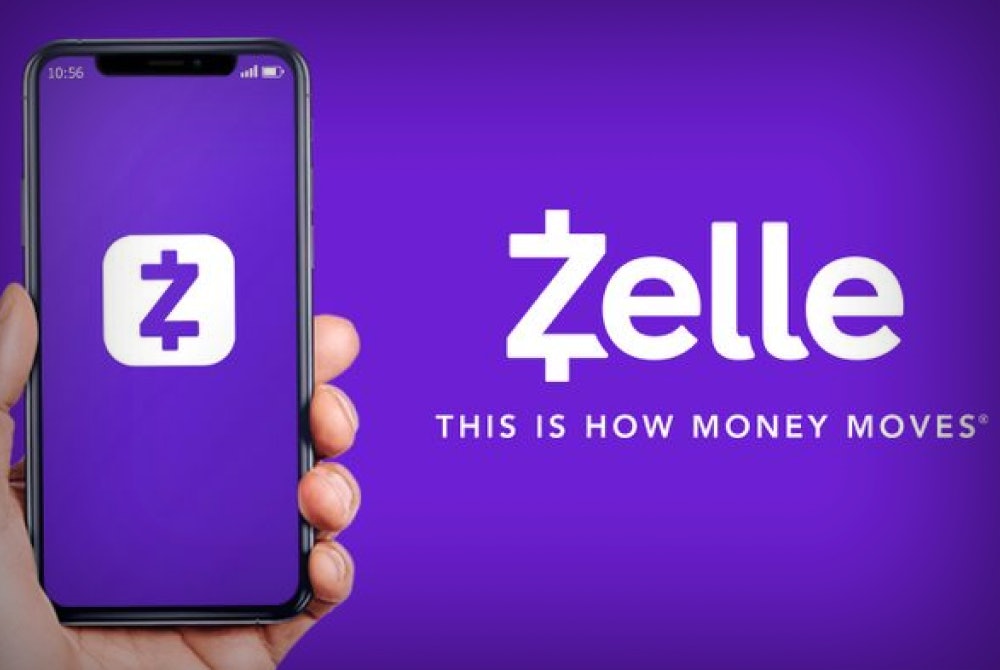Zelle scammers have been very active in recent years, with many media reports of Zelle scam victims, some of whom have never even used Zelle before being scammed.
Zelle operates within the online platforms of banks as a fast and convenient money transfer tool. However, bank customers have been easily confused with authenticating what's real and what's not when it comes to Zelle and how it actually works. They trust Zelle as it is a trusted 'money transfer service' by the banks.
Scammers have used the lack of knowledge about Zelle to operate many cunning schemes which have tricked hundreds of thousands of people into millions of dollars of losses.
Victims have been outraged at the lack of support and the outright trickery of the impersonation. Other victim's have railed against the speed of the scam and the almost instant loss of real money from their account.
In fact, the most beguiling part of the Zelle scam process is the most Zelle scams are initiated by scammers who send a text message pretending to be Zelle or the customer's bank. The hook of the scam is that the scammers impersonate the bank and offer to help the customer block / undo a suspicious Zelle transaction. The impersonators end up scamming the customer into an incorrect Zelle transfer.
A recent report in The Wall Street Journal suggests the sheer volume of Zelle scams , and pressure from consumer protection agencies, means that banks may be about to do something about it.
Banks Have a Change of Heart?
The topic of Zelle scams is not new. However, it may only be from pressure from the Consumer Finance Protection Board that we are seeing potential action from banks on Zelle scams and from other financial institutions like PayPal and Venmo.
Earlier this year, banks appeared to put the blame on customers for Zelle scams.
The banks had argued that they had created Zelle to help streamline customer money transfers and Zelle was just a tool. It was the customers who were the ones being tricked and it was the customers themselves who actually initiated the bad transfers to scammers. A NYTimes article summarized the position:
"Fraud Is Flourishing on Zelle. The Banks Say It’s Not Their Problem."
The New York Times March 6 2022

However pressure from The Consumer Financial Protection Bureau in July of this year might have moved the banks to act and to reverse their previous position.
Sources quoted by The Wall Street Journal this week disclosed that the banks might be working together to potentially establish a refund channel if Zelle scams do occur.
'The conversations they are having now center on standardizing refund procedures, according to people familiar with the matter. By agreeing to share liability inside Zelle’s system and guaranteeing to reimburse each other, the banks hope more customers will get their money back, the people said.'
Importantly, the improvements won't prevent scams, but they will allow the banks to better back-track and refund amongst each other if a customer reports a scam.
How Zelle Scams Work
Typically Zelle scams involve criminals who cleverly impersonate the bank or Zelle. They will send a text or make a call to the customer to initiate the scam. Here's how it works:
- Customer receives a text: A customer is sent a text message which asks a question like 'This is Chase Bank. Did you transfer $1,890 via Zelle. Confirm Y/N to approve'
- Customer responds: The customer responds to the text to confirm 'N' and that they did not make the transaction. The customer is texting with the scammer and not the bank. The scammer may also be impersonating the bank's phone number.
- Zelle impersonator: A 'Zelle representative' calls the customer directly to help the customer 'undo' the transaction. This is the scammer.
- Zelle impersonator: The impersonator instructs the victim to log into bank to reverse the charge. The scammer says that the customer needs to make another Zelle transaction to themselves to reverse the charge.
- Customer initiates transaction: The customer follows the instructions to reverse the transaction but they end up transferring money to the scammer's Zelle account.
- Conclusion: The Zelle impersonator / scammer tells the victim that the reversal will show up in a few days. However, the scammer has received the money and there is no reversal - just a single outgoing transaction from the victim to the scammer.
The scam is known as a 'me to me' scam where the scammer sets up the scam by adding the customer's phone number to the scammer's own Zelle profile for a period of time. During the phone call, when the scammer instructs the victim to search for 'themselves' to reverse the transfer (via their phone number), the victim is actually selecting the scammer's profile as the scammer has added the victim's cell phone number. The victim sees their own number and assumes that it is a transfer to themselves. It is not.
In a previous article in July of 2022, it was suggested that the banks did share responsibility in this scam loop-hole
“If a bank mistakenly links your cellphone number to a scammer’s account, that’s an error that should be corrected and you should be able to get your money back,” said Lauren Saunders, associate director at the National Consumer Law Center.
Refunds For Previous Zelle Scams
To date, there has not been a blanket refund policy on Zelle scams from banks. Some refunds have been processed for victims of Zelle scams, but this typically requires pressure from other sources beyond the customer (e.g. if you are featured in a media report of a Zelle scam, your case will get more attention). As a general rule, the faster a scam is reported, the more able a financial institution is able to attempt to reverse or block the transaction. Zelle scams which are instantly reported have a much better chance of a good outcome.
This man was $9k refunded by Chase bank after a 6 month fight which required investigators from News Channel 8 to push on the customer's behalf. Others have not been so lucky.
The lack of consistent refunds from banks is a result of the core mechanism of the scam - the scam tricks the customer into initiating a transaction.
Zelle scams are not a result of scammers hacking into Zelle or stealing from within the bank as these would be immediately covered and refunded by the bank. The Zelle scams are customer directed and the victim is making the transfer to the scammer (unknowingly of course). The core principle of the banking system is that customers need to be able to transfer money wherever they need, and the bank is not responsible if the customer changes their mind later.
How Zelle Scam Refunds Might Work
Better safeguards for customers on Zelle scams will rely on banks working together.
Scammers can only operate Zelle scams if they have Zelle account and a participating bank.
The potential refund process will mean the scammer's bank account / Zelle account will be blocked on the report of a scam by a victim, preventing the money from outflowing from the Zelle ecosystem.
Simply put, a refund process will mean that banks will have more of an end-to-end responsibility with the Zelle network and that can only be a good thing for consumers.


Comments